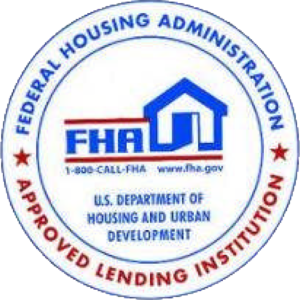While other credit scores, like VantageScore, have increased in popularity in recent years the FICO score, which is an abbreviation of Fair Isaac Co, is still the standard. Ranging from 300 to 850, there are five main factors that go into a FICO score are:
- Payment History (35% of the score)
- Debt/amounts owed (30%)
- Age of credit history (15%)
- New credit/inquiries (10%)
- Mix of accounts/types of credit (10%)
The weighting of these categories can vary. The importance of any one of these factors depends on the overall information on the credit report. For example, those who haven’t been using credit for very long will be factored differently than those who have been.
Having a lower credit score does not mean that you have to give up, or even postpone, your dream of buying a home. Home loans to people who have a lower credit score have become more popular recently. While not as prevalent as they were in the early 2000’s, credit standards have been gradually easing since the financial crisis.
Factors Influencing Whether You Can Get a Loan
- Who Your Lender Is – Your best bet might be to find a regular lender that handles products like FHA and VA loans. These loans have less stringent credit requirements than conventional mortgage. Independent lenders also might have more flexibility since they aren’t governed by the same rules and regulations as the larger banks.
- Lower Credit Score – If you are in the “low score” category it might be hard. You might be asked to put a larger amount of money as a down payment, to accept higher interest terms or to put aside funds to secure the first few years of payments. The better your score gets, the easier it will be to find lending options. Most lenders will issue government- backed FHA loans and VA loans to borrowers as low as 640.
- Your Financial Situation – Lenders will look at how likely it is that you will have the ability to pay your mortgage. Things like job history, income stability and overall debt level will be considered.
How to Improve Your Fico Score
While it is still possible to get a loan with a lower credit score, you are better off if your credit score isn’t an issue. If you know you are going to be buying a house in the future, Experian, one of the big credit agencies, has the following 4 tips to help you start improving your FICO score.
1. Pay Bills on Time
- Pay all your bills on time, every month
- If you have any past-due accounts, bring them current and make on-time payments going forward
- Consider setting up automatic payments or payment reminders to help ensure you aren’t ever late with a payment.
2. Think About Your Credit Utilization Ratio
No one wants to max out their credit cards, and creditors don’t like to see credit accounts that look maxed-out either. Your credit utilization ratio compares the total amount of credit you have available, based on credit card limits, to how much of your available credit you’re actually using (your balance). The lower your credit utilization ratio, the better. (Most experts recommend you keep it below 30%.) You can reduce your credit utilization ratio by:
- Paying off credit card debt.
- Keeping credit card balances low or at zero
- Being cautious when closing accounts. When you close an account, you reduce your amount of available credit, which in turn affects your credit utilization ratio.
3. Be Careful with New Credit
Opening new credit card accounts, or even just applying for them, can affect your credit scores. Increasing the amount of credit, you have available could improve your credit utilization ratio, but only if you have the self-discipline to pay your bills each month. What’s more, every credit card application you make will appear as a hard inquiry on your credit report, and too many hard inquiries in a short amount of time can negatively affect your credit scores. A lender may also see multiple credit card applications within a short period of time and interpret that as a sign you’re in financial hot water and are using credit to stay afloat or live beyond your means. Lenders generally want to be certain you’re not in danger of overextending yourself financially before agreeing to extend you additional credit.
4. Get Help with Debt
If you’re struggling to pay your debt, you have options for help, including:
- Credit Counseling — A certified credit counselor can help you create a financial plan to better manage your debt. The Federal Trade Commission says most reputable credit counseling organizations are nonprofit. The Department of Justice’s U.S. Trustee Program maintains a searchable list of approved credit counseling agencies.
- Debt Management Plan — A DMP focuses on eliminating your debt. You’ll have to deposit money each month with a credit counselor who will then use the money to pay your unsecured bills according to a payment schedule the counselor works out with you and your creditors. Creditors may agree to lower interest rates or waive certain fees, but they’re not obligated to do so.
- Debt Consolidation — If you’re struggling with many high-interest unsecured debts, like multiple credit card balances, a debt consolidation loan can help you reduce the amount of interest you pay each month. In this way, you might be able to trim the total amount you pay every month, simplify your life by paying just one bill instead of multiple ones, and even pay down your debt faster.
At EMM Loans we offer VA, FHA and other loan options and we have worked with lots of clients that have had credit issues. We know how to help. Give us a call and let’s talk!




